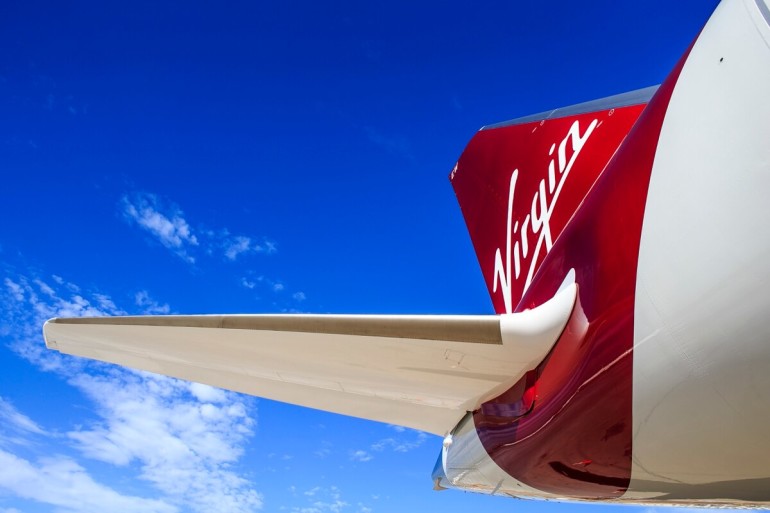Sponsored Listings:
Virgin Atlantic is set to challenge what it brands as International Airlines Group’s “dominance” at London Heathrow, as it unveils its plans to significantly increase its long-haul route network at the airport.
At the same time, the carrier plans to launch a new comprehensive network of domestic and European routes when the airport expands.
The new route maps illustrate how the airline’s flying programme could grow to deliver a step change in choice for customers, but only if the government reforms the way new Heathrow slots are allocated to enable the creation of a second flag carrier at the airport.
The plans represent a fourfold increase on Virgin Atlantic’s current international network and includes exciting unserved destinations such as Kolkata (India), Jakarta (Indonesia) and Panama City (Panama), where currently passengers cannot travel non-stop.
In total, Virgin Atlantic plans to serve 103 domestic, European and long-haul destinations, up from 19 long haul destinations in 2020.
Of the 84 new destinations planned, 12 are domestic, including Belfast, Glasgow and Manchester, while 37 are European, including Barcelona, Dublin and Madrid.
There are also 35 global routes on the agenda, including Buenos Aires, Jakarta and Kunming.

The government’s aviation strategy green paper has set a primary objective for the allocation of additional Heathrow capacity to facilitate effective competition between airlines, benefitting consumers through more choice and lower fares.
It has also set secondary objectives to improve domestic connectivity and to improve connectivity to international destinations that are currently underserved or unserved.
Virgin Atlantic’s route network plans enable the government to meet all three objectives by bringing new competition across multiple domestic, European and global routes, as well as opening up brand new destinations, the carrier argues.
Without a second flag carrier connecting passengers between its domestic, short and long-haul services, these important objectives cannot be met, argues Virgin.
Shai Weiss, chief executive, Virgin Atlantic, commented: “Never has the need for effective competition and choice at Heathrow Airport been more evident than during this summer of disruption, which has brought misery for tens thousands of travellers.
“Britain, and those who travel to it, deserve better than this.
“Air passengers need a choice and Virgin Atlantic is ready to deliver when Heathrow expands.
“Heathrow has been dominated by one airline group for far too long.
“The third runway is a once in a lifetime opportunity to change the status quo and create a second flag carrier.
“This would lower fares and give real choice to passengers, as well giving Britain a real opportunity to boost its trade and investment links around the world.
“Changing the way take-off and landing slots are allocated for this unique and vital increase in capacity at the nation’s hub airport will create the right conditions for competition and innovation to thrive.”

The rules governing the allocation of new slots are currently being reviewed by the government.
Virgin Atlantic warns that the new take-off and landing slots must be allocated in a way that enables the development of a second flag carrier with the necessary scale to compete effectively with IAG.
Ministers are being urged to grasp this once in a generation opportunity to shake up the Heathrow market so that British passengers and business can benefit from two flag carriers competing hard for their custom.
As things currently stand, IAG holds more than 55 per cent of all the take-off and landing slots at Heathrow, with no other airline holding more than five of the remaining slots.
IAG and its joint venture partners operate 77 monopoly routes, which forces customers to fly on their planes as no rival direct services exist.
Virgin Atlantic intends to compete on 26 routes where there is an IAG monopoly.
Source: breakingtravelnews.com










